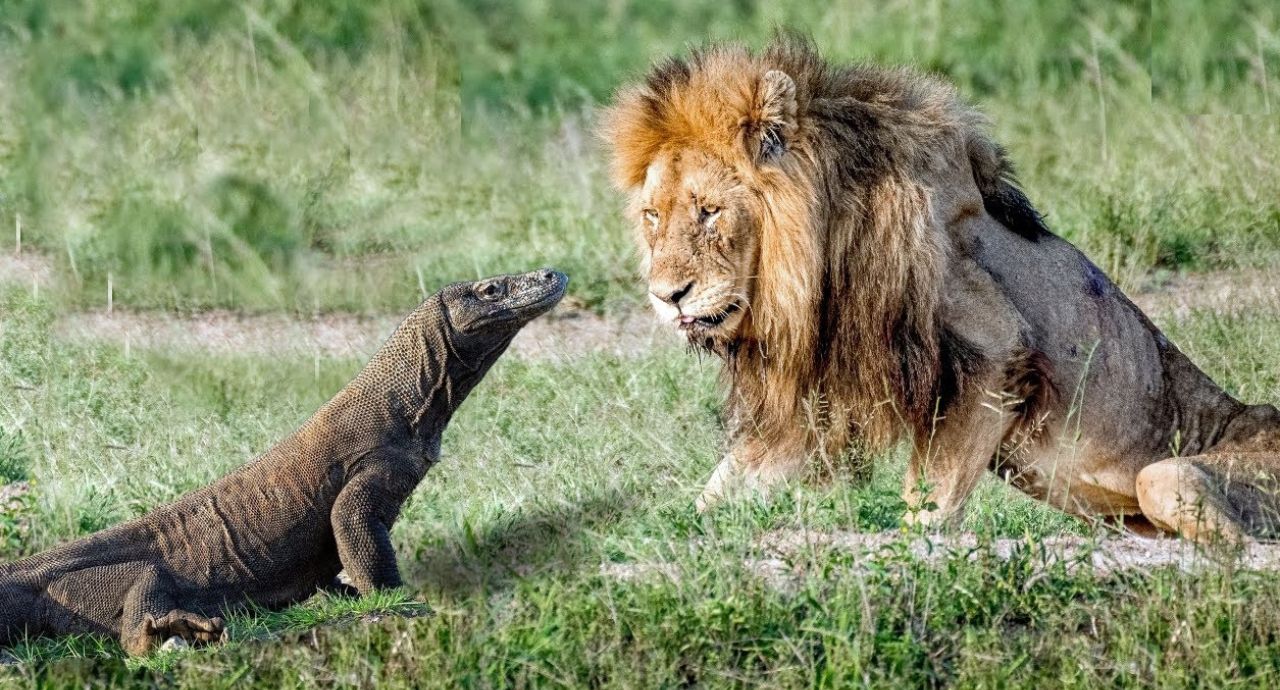A fight between a Komodo dragon and a lion is a highly improbable scenario in nature due to their vastly different habitats and continents. However, it’s an intriguing hypothetical matchup because both are powerful predators in their own right.
Lion
- Habitat: Lions are native to Africa and are apex predators in their ecosystem.
- Strengths: Lions are known for their strength, speed, and powerful jaws capable of delivering a lethal bite. They hunt in groups (prides), but even a single lion is formidable.
- Weaknesses: Lions rely on speed and power, but they can be vulnerable if they sustain injuries that affect their ability to hunt.
Komodo Dragon
- Habitat: Komodo dragons are found on a few Indonesian islands, such as Komodo and Rinca.
- Strengths: They are the largest lizards in the world and have a powerful bite filled with venomous bacteria. Their bite can cause severe infection and sepsis in their prey, leading to death within hours or days.
- Weaknesses: While powerful, Komodo dragons are slower and rely on stealth and ambush tactics rather than speed or direct confrontation.
Watch Video –
Hypothetical Outcome
- Lion’s Advantage: In a direct fight, a lion’s speed, agility, and powerful bite could overpower the slower Komodo dragon. The lion’s thick mane could also provide some protection against bites.
- Komodo Dragon’s Advantage: If the Komodo dragon manages to land a bite, its venom could severely weaken or even kill the lion over time, making it a dangerous opponent despite being physically less imposing.
Overall, the outcome of such a fight would depend on the circumstances. If the lion avoids a lethal bite, it would likely win due to its superior strength and speed. However, the Komodo dragon’s venomous bite could turn the tide if the lion is not cautious.
Since such an encounter is not natural, any content depicting this should be approached with caution regarding its authenticity and ethical implications.




